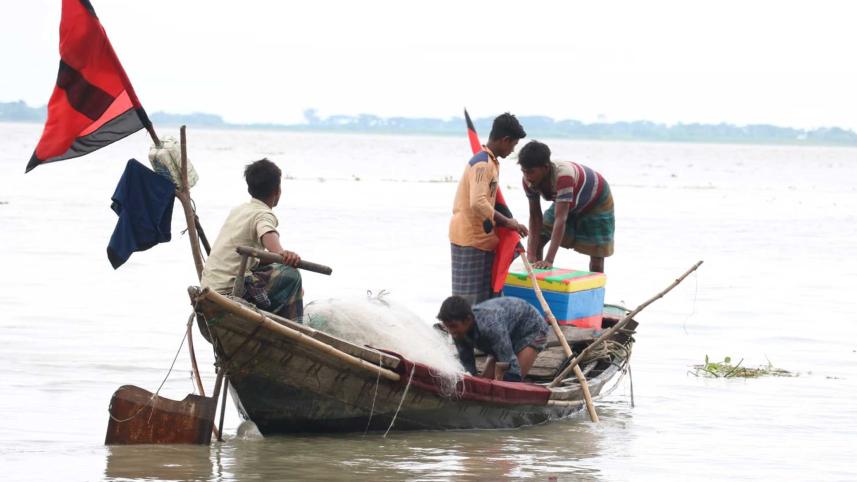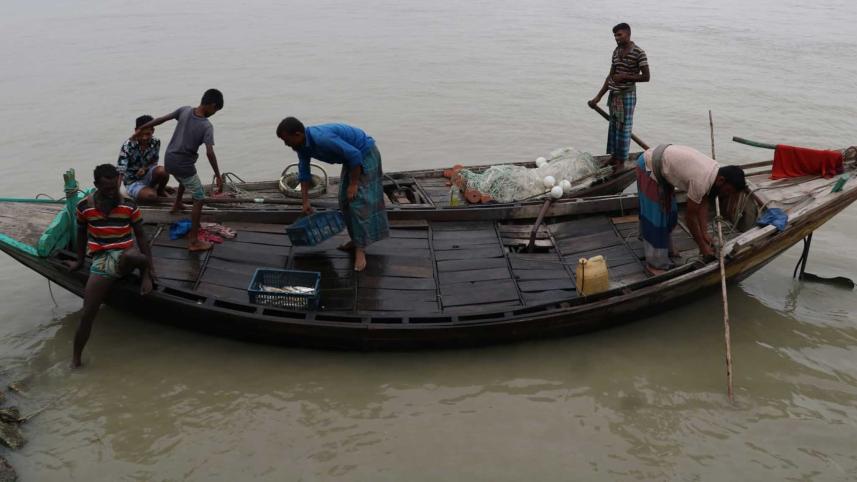Hilsa elusive

Fishermen from Bhola, Barishal and Kuakata are returning empty handed from the rivers in the coastal region due to a lack of hilsa in the waterbodies, even though it is the harvest season of the fish.
Many of them had taken out loans to take their boats and trawlers to the rivers for catching hilsa, and are now worried about how they will pay back the loans and remain afloat with their families under the circumstances.
According to the Department of Fisheries, the hilsa season got delayed a bit due to heat and climate change, and more fish will be in the rivers a few days later.
"I could manage to catch only around 2-3 kilogrammes of hilsa in the last four days, which we had to eat while staying on the trawler in the Meghna river. As such, I returned empty handed. I wonder how I am going to return the money I had borrowed," said Russel Majhi, a fisherman from Tulatali village under Bhola Sadar upazila.

Monir Majhi, another fisher, said that it costs Tk 3,000 including oil to go to river once. "Six of us went to catch hilsa, but we returned empty handed," he added.
Fisherman Md Jasim Mia said hilsas are avoiding the rivers as ships from Chattogram are using this river route.
Some other fishermen said siltation and pollution of the rivers and presence of a huge number of fishing trawlers are reasons why hilsas are not entering the rivers from the Bay.
Nuru Majhi, president of Mahipur Fishermen's Association, said there is no hilsa at Kuakata, Alipur and Mahipur fish landing stations. He said around 50,000 people in this region, engaged in hilsa catching and trading, are now in dire straits.
According to sources at the Divisional Fisheries Office in Barishal, there are 4.21 lakh registered fishermen in the division.
Although at least 2,000-3,000 maunds of hilsa were expected to arrive daily at the 25 fish landing stations in the division, even half of it has not been received, the sources also said.
"It is not true that there is no hilsa at all; the number, however, is much less than expected. The situation may change in a few days when more hilsa will enter the rivers once the temperature of water becomes favourable for laying eggs," said Nripendra Nath Biswas, deputy director of the Barishal divisional fisheries office.

 For all latest news, follow The Daily Star's Google News channel.
For all latest news, follow The Daily Star's Google News channel.
Comments